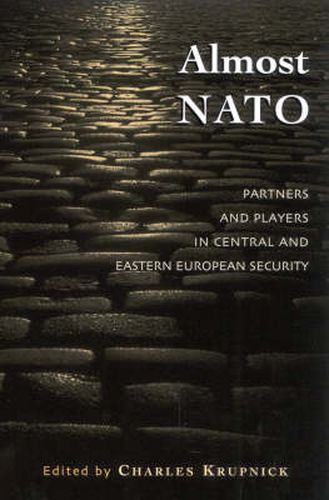Readings Newsletter
Become a Readings Member to make your shopping experience even easier.
Sign in or sign up for free!
You’re not far away from qualifying for FREE standard shipping within Australia
You’ve qualified for FREE standard shipping within Australia
The cart is loading…






NATO’s quickly evolving relationship with Central and Eastern Europe is forming a new basis for security in the region. Enlargement into the former Soviet bloc, the conflict over Kosovo and developing foreign and domestic events are drastically changing the technical aspects of security management, the perceptions of security held by the region’s countries and the actual security situation on the ground. This work broadly examines the region’s current security situation and specifically explores NATO’s relationship with Slovakia, Bulgaria, Ukraine and the Baltic States, all non-members, but each with its own expectations for membership and relationship to the organisation. Russia’s interaction with NATO since the end of the Cold War and that country’s crucial role in the region’s future rounds out the national coverage. The book’s connective tissue is a broader concept of security that encompasses the European Union, environmental concerns, minority issues and economic and political performance as Europe moves in the 21st-century. The interrelationship and significance of varied concepts of security are summarised and further developed in the concluding chapter, along with an effort to place developments in the region within a more theoretical perspective.
$9.00 standard shipping within Australia
FREE standard shipping within Australia for orders over $100.00
Express & International shipping calculated at checkout
NATO’s quickly evolving relationship with Central and Eastern Europe is forming a new basis for security in the region. Enlargement into the former Soviet bloc, the conflict over Kosovo and developing foreign and domestic events are drastically changing the technical aspects of security management, the perceptions of security held by the region’s countries and the actual security situation on the ground. This work broadly examines the region’s current security situation and specifically explores NATO’s relationship with Slovakia, Bulgaria, Ukraine and the Baltic States, all non-members, but each with its own expectations for membership and relationship to the organisation. Russia’s interaction with NATO since the end of the Cold War and that country’s crucial role in the region’s future rounds out the national coverage. The book’s connective tissue is a broader concept of security that encompasses the European Union, environmental concerns, minority issues and economic and political performance as Europe moves in the 21st-century. The interrelationship and significance of varied concepts of security are summarised and further developed in the concluding chapter, along with an effort to place developments in the region within a more theoretical perspective.